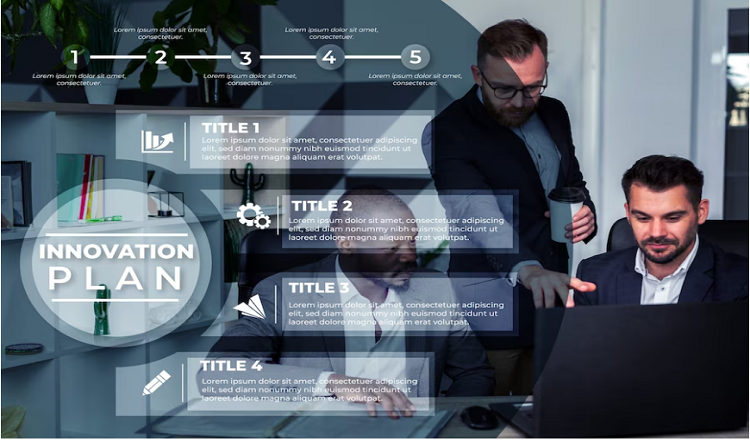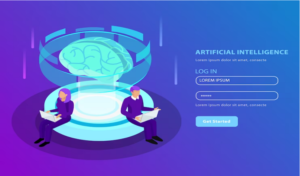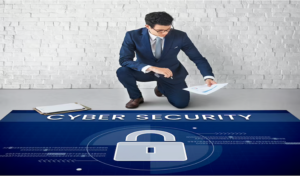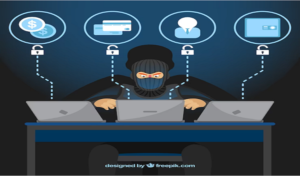The impact of cyber-attacks on businesses and organizations

As our world gets more and more connected, the risk of cyberattacks on US companies and organisations keeps growing. What is a cyber-attack, though? Well, think that a thief is trying to break into your house, but instead of breaking in physically, they are trying to get into your computer system. Cyberattacks are basically digital break-ins where hackers try to get unauthorised access to private information, mess up operations, or try to get money from their victims.
In the past few years, there have been more and more cyberattacks, and they don’t seem to be slowing down. Cybercrime will cost companies and organisations around the world an estimated $6 trillion each year by 2021. This increase is caused by a number of things, such as the rise of cloud computing and the internet of things (IoT), which have given hackers more places to attack. Also, the COVID-19 pandemic has caused many businesses to switch to remote work, which makes them even more vulnerable to cyberattacks. But don’t worry, businesses and organisations can take steps to protect themselves from cyber-attacks and lessen the damage they cause when they do happen.
Different kinds of cyberattacks
Cyberattacks come in many different forms, and companies and organisations in the United States need to know about them all in order to stay safe. Phishing, malware, ransomware, and denial-of-service (DoS) attacks are some of the most popular types. Phishing attacks are meant to trick users into giving out private information, while malware can infect computer systems and steal data. Ransomware is a kind of malware that locks up a person’s files and asks for money in return for the key to unlock them. DoS attacks are meant to flood a target’s network with so much data that it can’t be used.
Cyberattacks are becoming more regular and more sophisticated, as recent high-profile attacks in the United States show. For example, in 2021, a ransomware attack on the Colonial Pipeline stopped fuel from getting to the East Coast. In 2020, the SolarWinds hack affected a lot of government bodies and businesses. These attacks show how important cyber security is and how careful companies and organisations need to be to keep their sensitive information safe.
Financial effect
Cyberattacks on companies and organisations in the US can be very bad for their finances. Companies may have to pay for court fees, fines from regulators, and damage to their reputations on top of the cost of getting back on their feet after an attack. For example, a successful ransomware attack can cause companies to lose a lot of money because they may have to pay the attacker a lot of money to get their protected data back.
Recent studies show that cyberattacks in the United States cost a lot. In 2020, the average cost of a data breach was $8.64 million, and the healthcare and financial businesses were the most likely to be affected. Cyberattacks can also lead to missed business chances and lower productivity, which hurts a company’s bottom line even more. Because of this, it’s important for businesses and organisations to spend money on cyber-security measures to avoid cyber-attacks and reduce the amount of money they cost.
Cyberattacks on companies and organisations in the US can be very bad for their finances. Companies may have to pay for court fees, fines from regulators, and damage to their reputations on top of the cost of getting back on their feet after an attack. For example, a successful ransomware attack can cause companies to lose a lot of money because they may have to pay the attacker a lot of money to get their protected data back.
Recent studies show that cyberattacks in the United States cost a lot. In 2020, the average cost of a data breach was $8.64 million, and the healthcare and financial businesses were the most likely to be affected. Cyberattacks can also lead to missed business chances and lower productivity, which hurts a company’s bottom line even more. Because of this, it’s important for businesses and organisations to spend money on cyber-security measures to avoid cyber-attacks and reduce the amount of money they cost.
Reputational effect
Cyberattacks can hurt companies and organisations in the United States both financially and in terms of their reputation. A successful attack can hurt a company’s brand and image by making customers less likely to trust and stick with it. For example, a data breach in which customer information is lost can lead to bad press and a loss of trust in the company’s ability to keep private information safe.
There have been a number of well-known cyberattacks that have hurt the reputations of US companies. One example is the Equifax data breach in 2017, which exposed private personal information about millions of customers and led to widespread criticism of how the company handled the situation. In the same way, the Target data breach in 2013 caused buyers to lose trust in the company and the stock price to drop significantly. These examples show how important cyber-security is and what kind of damage a cyber-attack could do to a company’s image.
Legal impact
Cyberattacks can cost companies and organisations in the USA money and hurt their reputations, but they can also lead to legal problems. For example, a company could be sued if it doesn’t protect customer data well enough or if it breaks a rule about data privacy. Also, companies that don’t follow cyber-security laws may have to pay fines and other penalties if the rules aren’t followed.
There have been a number of cases where cyberattacks led to court action against a company. For example, after a data breach in 2017, the credit reporting service Equifax settled with the Federal Trade Commission and other regulatory bodies in 2019 for $700 million. In 2020, the hotel company Marriott International would have had to pay a $123 million fine for not protecting customer information when there was a data breach. These cases show how important cyber security is and how a cyber attack can affect your legal rights.
What to do and how to do it
Businesses and organisations in the USA should put stopping cyberattacks at the top of their list of things to do. Cyberattacks can be stopped by using strong passwords, multi-factor authentication, keeping software up to date, and teaching workers how to spot and avoid phishing attacks. It’s also important to have a solid plan for what to do if a cyber-attack happens. This includes isolating the systems that are affected, calling the police, and telling customers and other parties.
If a cyberattack happens, companies and organisations should move quickly to limit the damage. This could mean bringing back data from files, fixing security holes, and finding and getting rid of any malware or viruses. It’s also important to talk to customers and other partners about what happened and what steps are being taken to fix it. Businesses and organisations can reduce the risk and damage of cyberattacks by being proactive about preventing and responding to them.
Conclusion
Cyberattacks are a major threat to companies and organisations in the United States because they can cause financial, legal, and reputational damage. Cyberattacks come in many forms and are always changing, so no organisation is safe from the risk. But if companies and organisations are proactive about preventing cyberattacks and have a good plan for responding to an attack, they can reduce the damage of an attack and make it less likely that a breach will happen in the first place.
Cybersecurity is important and should be a top concern for businesses and organisations. This means spending money on strong cyber-security measures like firewalls, encryption, and intrusion detection systems, and teaching workers how to spot and deal with potential threats. Cybersecurity shouldn’t be seen as a nice-to-have extra; it should be seen as an important part of how any organisation works. Businesses and organisations can protect their customers, their image, and their bottom line by taking cyber security seriously.
Read More You May Like:








